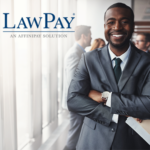
It’s All ‘Mine’
//
 Book review time. Spoiler alert, it is a favorable one, so if you prefer your critical commentary on the savage side, what follows might disappoint. The book in question is “Mine! How the Hidden Rules of Ownership Control Our Lives,” co-authored by two law professors, Columbia’s Michael Heller and UCLA’s James Salzman. For those of us interested in gaining a deeper understanding of the “property” piece of intellectual property, the book is a must read. If only for the easily digested real-world examples of the six rules of ownership that the authors point to as governing how property is claimed in the modern world.
Book review time. Spoiler alert, it is a favorable one, so if you prefer your critical commentary on the savage side, what follows might disappoint. The book in question is “Mine! How the Hidden Rules of Ownership Control Our Lives,” co-authored by two law professors, Columbia’s Michael Heller and UCLA’s James Salzman. For those of us interested in gaining a deeper understanding of the “property” piece of intellectual property, the book is a must read. If only for the easily digested real-world examples of the six rules of ownership that the authors point to as governing how property is claimed in the modern world.
As the dastardly invasion of Ukraine rages on at the time of this writing, the stakes for informed citizens to understand what’s behind competing claims of ownership are high. Members of the legal community, in particular, are charged with helping others balance out ownership claims all the time, whether on a global or local scale. And as IP lawyers, “Mine!”’s observation on how the word “mine” takes on an outsized role in a toddler’s lexicon will be appreciated by those of us who have had to deal with aggrieved creators or inventors, especially those that exhibit a similar emotional response to challenges to their ownership. In short, it can be a useful exercise, even for those of us whose careers in IP are measured in decades, to remind ourselves of first principles of ownership, while maintaining our sensitivity to the emotional import of disputes over ownership — to the parties, their families, and society-at-large.
googletag.cmd.push( function() { // Enable lazy loading. googletag.pubads().enableLazyLoad({ renderMarginPercent: 150, mobileScaling: 2 }); // Display ad. googletag.display( "div-id-for-top-300x250" ); googletag.enableServices(); });To illustrate its points, the book deftly mixes in legal concepts, such as the choice between taking an ex ante or ex post approach to adjudicating ownership disputes, with real-life scenarios that illustrate how such disputes arise. In one example, the book discusses how a state court judge sitting in San Francisco decided a dispute over who had the rights to a record-setting home run ball by choosing to define possession in a unique way, resulting in the ball being auctioned off and the proceeds distributed equally between the litigants. As the authors correctly note, society and jurists define possession based on a choice between “animating values” — rather than strict legal definitions of what ownership means. In short, possession is not a fact, but a choice made in the context of resolving disputes.
 Sponsored Excellent Mid-Level Litigation Associate Opportunity In Dallas, Texas. Apply within. From Kinney Recruiting
Sponsored Excellent Mid-Level Litigation Associate Opportunity In Dallas, Texas. Apply within. From Kinney Recruiting That distinction is an illuminating one, evoking for me the ownership dispute that lay at the heart of the constitutionality of the IPR system for assessing patent validity laid out in the America Invents Act (AIA). For inventors, a patent is often thought of as a piece of property owned by the inventor or the inventor’s assigns — with the inventor’s claim and emotional attachment to ownership of the patent often exceeding that of their other possessions, save for their physical home. For those who think of patents as property, therefore, the idea of the very same USPTO that granted the patent — after years of rigorous examination and significant expense to the applicant — later revoking that patent is the height of perversity. We don’t countenance do-overs when it comes to driving a used car we bought off the lot, so why should a patent owner not have clear title to their invention? Or so the question goes. Unfortunately for patent owners, when the issue reached the Supreme Court, a small minority of justices exhibited concern about the constitutionality of IPRs, or found much succor in the comparison of today’s patents with the land patents of yesteryear.
Instead, the majority of the Supreme Court endorsed a different view of a patent holder’s ownership rights. Rather than a property right, in Oil States the Supreme Court deemed patents “public franchises” — a specific type of property, one that could be revoked by the franchise grantor. In short, they redefined what it means to own a patent post-AIA, much to the chagrin of many of today’s patent holders and patent aspirants. While the book does not address the question of what owning a patent means — though it does have an interesting and thorough discussion of IP rights generally — it does note that as a society we are moving to a different ownership paradigm in many spheres. Spurred by the digitization of sought-after goods and services, we are constantly being confronted with a choice between getting access to something we want, be it a movie or song or software, through a limited license or not at all. Yes, technically you can pirate things, but this audience is above that. At bottom, modern society continues to challenge that idea of ownership, even of things once thought sacred and personal, such as our privacy or even our DNA.
googletag.cmd.push( function() { // Enable lazy loading. googletag.pubads().enableLazyLoad({ renderMarginPercent: 150, mobileScaling: 2 }); // Display ad. googletag.display( "div-id-for-middle-300x250" ); googletag.enableServices(); }); googletag.cmd.push( function() { // Enable lazy loading. googletag.pubads().enableLazyLoad({ renderMarginPercent: 150, mobileScaling: 2 }); // Display ad. googletag.display( "div-id-for-storycontent-440x100" ); googletag.enableServices(); }); googletag.cmd.push( function() { // Enable lazy loading. googletag.pubads().enableLazyLoad({ renderMarginPercent: 150, mobileScaling: 2 }); // Display ad. googletag.display( "div-id-for-in-story-youtube-1x1" ); googletag.enableServices(); });As you can tell from my very limited synopsis, the book “Mine!” does not shy away from cloaking weighty discussion of important legal and social principles in the guise of an easy-to-read book full of interesting anecdotes and real-life ownership disputes. From Disney’s long-time efforts to extend the copyright on Mickey Mouse to social mores regarding parking spots post-snowstorm, the book challenges the reader to join the authors on a journey to uncover the hidden rules of ownership that govern our behavior – and subsequent reactions to the claims of ownership by others. It is a worthwhile journey to embark on, especially for those of us fortunate enough to deal with intellectual property ownership issues as part of our professional lives. Seek it out and prepare for “Mine!” to deliver an enriching reading experience.
Please feel free to send comments or questions to me at [email protected] or via Twitter: @gkroub. Any topic suggestions or thoughts are most welcome.
Sponsored Sponsored Getting Paid: What Lawyers Need To Know Want to know how to run a successful, modern law firm? Read our latest e-book to explore the ways the practice of law has changed… From LawPay and Above The Law
Sponsored Getting Paid: What Lawyers Need To Know Want to know how to run a successful, modern law firm? Read our latest e-book to explore the ways the practice of law has changed… From LawPay and Above The Law  Sponsored AI And Legal Contract Management: What To Look For And How To Get Started Are your lawyers stuck doing manual work that could be automated? Read on. From Above the Law
Sponsored AI And Legal Contract Management: What To Look For And How To Get Started Are your lawyers stuck doing manual work that could be automated? Read on. From Above the Law  Sponsored Your (Free!) Legal Billing Kit Awaits Download this comprehensive resource for law firms, courtesy of our friends at LawPay. From LawPay and Above The Law
Sponsored Your (Free!) Legal Billing Kit Awaits Download this comprehensive resource for law firms, courtesy of our friends at LawPay. From LawPay and Above The Law  Sponsored Your (Free!) Legal Billing Kit Awaits Download this comprehensive resource for law firms, courtesy of our friends at LawPay. From LawPay and Above The Law
Sponsored Your (Free!) Legal Billing Kit Awaits Download this comprehensive resource for law firms, courtesy of our friends at LawPay. From LawPay and Above The Law Gaston Kroub lives in Brooklyn and is a founding partner of Kroub, Silbersher & Kolmykov PLLC, an intellectual property litigation boutique, and Markman Advisors LLC, a leading consultancy on patent issues for the investment community. Gaston’s practice focuses on intellectual property litigation and related counseling, with a strong focus on patent matters. You can reach him at [email protected] or follow him on Twitter: @gkroub.
Sponsored Sponsored Excellent Mid-Level Litigation Associate Opportunity In Dallas, Texas. Apply within. From Kinney Recruiting
Sponsored Excellent Mid-Level Litigation Associate Opportunity In Dallas, Texas. Apply within. From Kinney Recruiting  Sponsored A Lawyer’s Map Of ‘The Marketing Funnel’ Here’s what you didn’t learn in law school about the consumer’s journey from digital encounter to long-term client. From Above the Law Topics
Sponsored A Lawyer’s Map Of ‘The Marketing Funnel’ Here’s what you didn’t learn in law school about the consumer’s journey from digital encounter to long-term client. From Above the Law Topics Book Reviews, Books, Gaston Kroub, Intellectual Property
Introducing Jobbguru: Your Gateway to Career Success
The ultimate job platform is designed to connect job seekers with their dream career opportunities. Whether you're a recent graduate, a seasoned professional, or someone seeking a career change, Jobbguru provides you with the tools and resources to navigate the job market with ease.
Take the next step in your career with Jobbguru:
Don't let the perfect job opportunity pass you by. Join Jobbguru today and unlock a world of career possibilities. Start your journey towards professional success and discover your dream job with Jobbguru.
Originally posted on: https://abovethelaw.com/2022/03/its-all-mine/